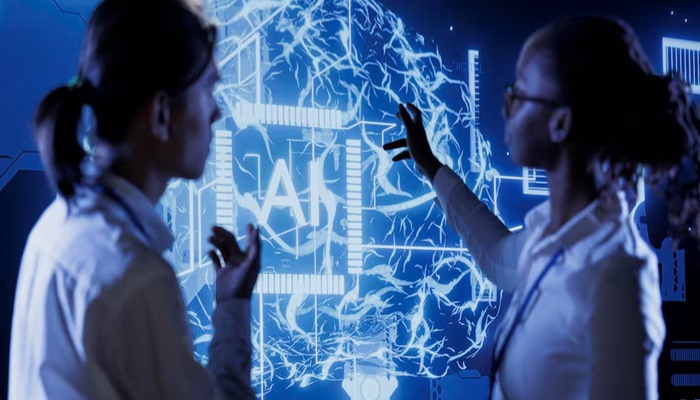Artificial intelligence could be increasing feelings of isolation in the workplace, as more employees interact with these tools instead of their own colleagues, according to a new report.
Findings from a new survey from design firm MOO reveal that 84% of employees in the United States who are urged to use AI experience loneliness.
This figure surpasses the average of 79% of workers who report feeling isolated at work — a number that climbs even higher among younger generations, with 89% of Gen Z and 82% of Millennials experiencing increased feelings of loneliness.
Cognitive outsourcing prevalent
These findings come as 65% of employees engage in cognitive outsourcing, where employees turn to technology before asking a colleague.
Millennials are most likely to engage in this practice, with 71%, as they turn to AI first before engaging with colleagues.
Only around half of Baby Boomers (51%) and Gen Zs (51%), on the other hand, engage in similar behaviour.
MOO’s findings follow Microsoft’s latest Work Trend Index that shows 46% of employees now see AI as a “thought partner” and are turning to it more to avoid human interaction at work.
Claire Donald, Chief Product and Technology Officer at MOO, underscored that human interaction should remain a priority in the wake of AI adoption.
“AI is transforming the way we work and increasing automation, but it’s connection, creativity, and culture that remain at the heart of thriving organisations,” Donald said in a statement.
“As companies adopt new tools, they must also prioritise human interaction — those day-to-day meetings and opportunities to collaborate that foster a sense of belonging and spark innovation across teams.”
Importance of in-office time
To improve human interaction in the workplace, various employers across the world have been implementing office-return policies after years of working from home. Among the reasons cited are boosting productivity, enhancing connections, and improving workplace culture.
Despite ongoing resistance to office-return policies, 76% of employees in MOO’s poll said productivity is more effective in the office than at home (61%).
They also see the value of connecting at work, with over 80% saying they participate in team-building activities or social events.
MOO underscored the importance of implementing a hybrid approach with a mix of human input and digital tools amid AI adoption.
“Ultimately, finding a balance between leveraging AI and preserving meaningful interactions will be crucial for organisations to thrive in the future,” it said in a media release.
Source – https://www.hcamag.com/nz/news/general/is-ai-making-the-workplace-lonelier/543965




















